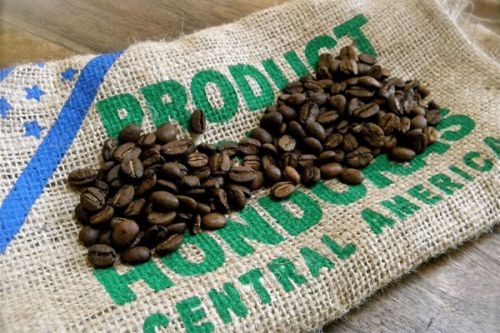Brazilian coffee Brazil joins the ranks of boutique coffee as the world's largest coffee producer.
Brazil has failed to increase production in recent years, but it has greatly improved the quality of coffee in the past decade, trying to get rid of the idea that Brazilian weight is less important than quality, and Brazilian beans are as light as water. In recent years, Brazil has successfully entered the boutique coffee market.

Brazil is the largest coffee producer in the world.
Although Brazil has failed to increase production in recent years, it has greatly improved the quality of coffee in the past decade, trying to get rid of the idea that Brazilian weight is not important to quality and that Brazilian beans are as light as water. In recent years, it has successfully entered the boutique coffee market.
Who says Brazil doesn't have good beans!
The rating of producing areas in Brazil
Compared with the elevations of the producing countries in Central and South America, Brazil is significantly lower, with more estates below 1000 meters than above. The landform here is flat and monotonous, lack of microclimate, and accustomed to unshaded trees (sun-exposed) planting, resulting in the development of Brazil's unique soft bean flavor-low sour taste, heavy nutty flavor, good chocolate sweetness and mellowness, but slightly woody, flower and orange fragrance is not obvious. To put it simply, Brazilian coffee is light, and it is not easy to drink the wild and domineering aroma of sour and orange.
Brazilian coffee interprets soft bean aesthetics in five levels, in the following order: extremely supple (Strictly Soft) → supple (Soft) → slightly supple (Softish) → unpalatable (Hardish) → iodine choking (Rioy).
In other words, Brazilian beans do not emphasize the lively, sour, rhythmic and transparent characteristics of hard beans, but focus on the mild, smooth, mellow and sweet characteristics of soft beans, so Brazilian beans are more suitable for espresso.
Brazilian coffee farms choose sun, half-sun or water washing treatments according to the dry and humidity conditions of the climate to show the best regional flavor. Such a pluralistic approach is rare in the world.
So should it be washed in the sun, half-sun or water? This depends on local temperature conditions, as it can seriously affect whether pods (sheepskin beans) are overfermented and moldy during drying. Local estates will consider to use the best way to reduce the breeding of mold to deal with coffee beans. In principle, the washing method should be used in the areas with high humidity, and the sun or half-sun should be used in the areas with low humidity.
Important Notice :
前街咖啡 FrontStreet Coffee has moved to new addredd:
FrontStreet Coffee Address: 315,Donghua East Road,GuangZhou
Tel:020 38364473
- Prev

Italian professional bean grinder single bean grinder Arabica coffee beans how to grind? Sumatra, Indonesia
How to grind Arabica coffee beans? It can be carried out mainly by two methods, one is the traditional manual grinding, the other is that it can be ground by bean grinding machine, each of which has its own advantages. Manual grinding of Arabica coffee beans: manually ground Arabica coffee beans, uniform powder particles, can better maintain the original flavor. But the grinding speed is too fast.
- Next

Brazilian coffee beans Brazilian coffee estate Manor coffee beans
The best interpreter of soft bean aesthetics of red coffee manor--Daterra Brazil national treasure Daterra Farm has been developed and cultivated for 20 years, bringing Brazil's soft bean aesthetics to full play. Denmark's barista Troels Paulsen is an espresso recipe from Daterra Sweet Collection that won the World of 2005.
Related
- Detailed explanation of Jadeite planting Land in Panamanian Jadeite Manor introduction to the grading system of Jadeite competitive bidding, Red bid, Green bid and Rose Summer
- Story of Coffee planting in Brenka region of Costa Rica Stonehenge Manor anaerobic heavy honey treatment of flavor mouth
- What's on the barrel of Blue Mountain Coffee beans?
- Can American coffee also pull flowers? How to use hot American style to pull out a good-looking pattern?
- Can you make a cold extract with coffee beans? What is the right proportion for cold-extracted coffee formula?
- Indonesian PWN Gold Mandrine Coffee Origin Features Flavor How to Chong? Mandolin coffee is American.
- A brief introduction to the flavor characteristics of Brazilian yellow bourbon coffee beans
- What is the effect of different water quality on the flavor of cold-extracted coffee? What kind of water is best for brewing coffee?
- Why do you think of Rose Summer whenever you mention Panamanian coffee?
- Introduction to the characteristics of authentic blue mountain coffee bean producing areas? What is the CIB Coffee Authority in Jamaica?

